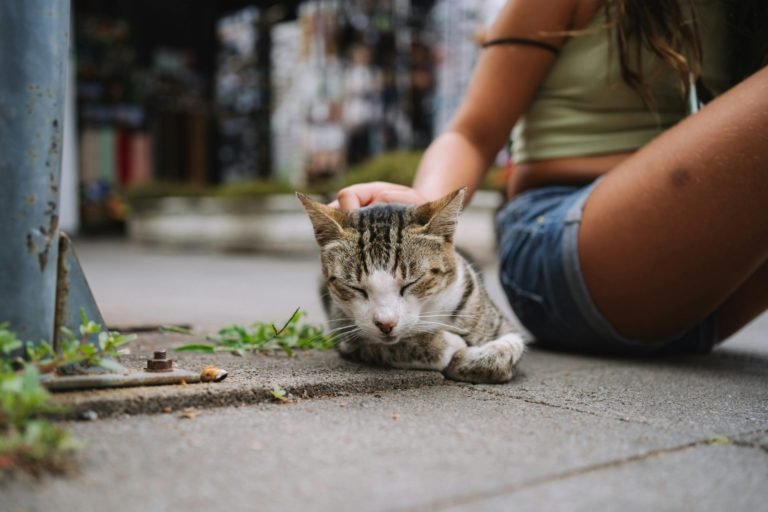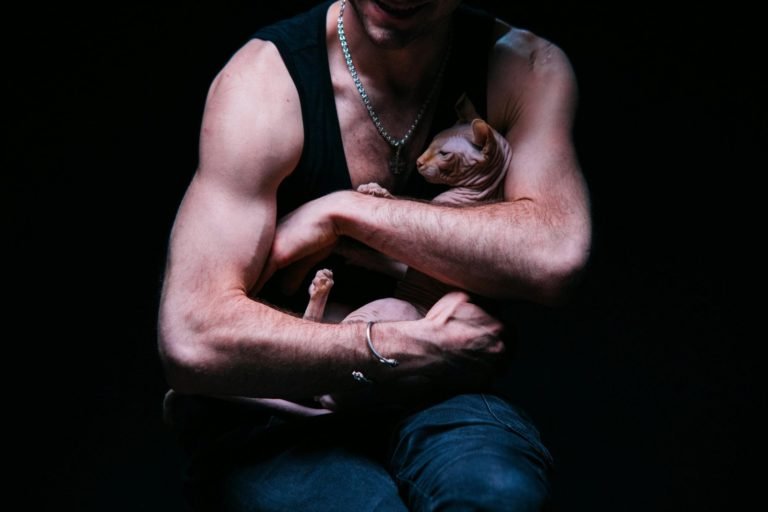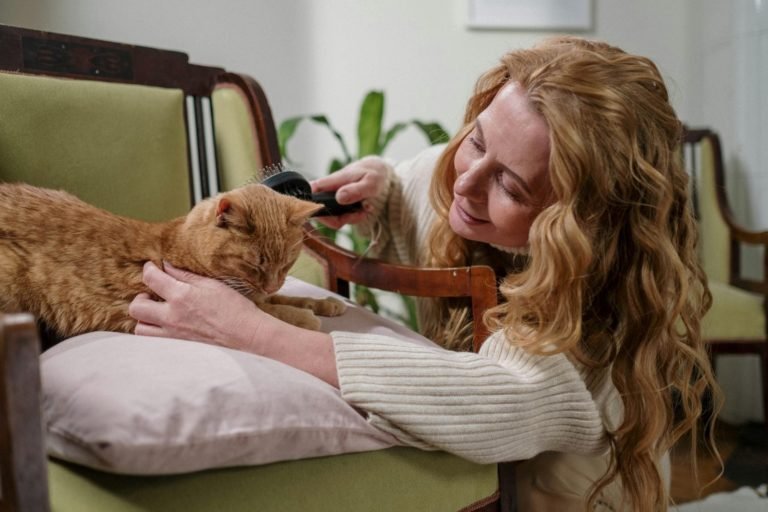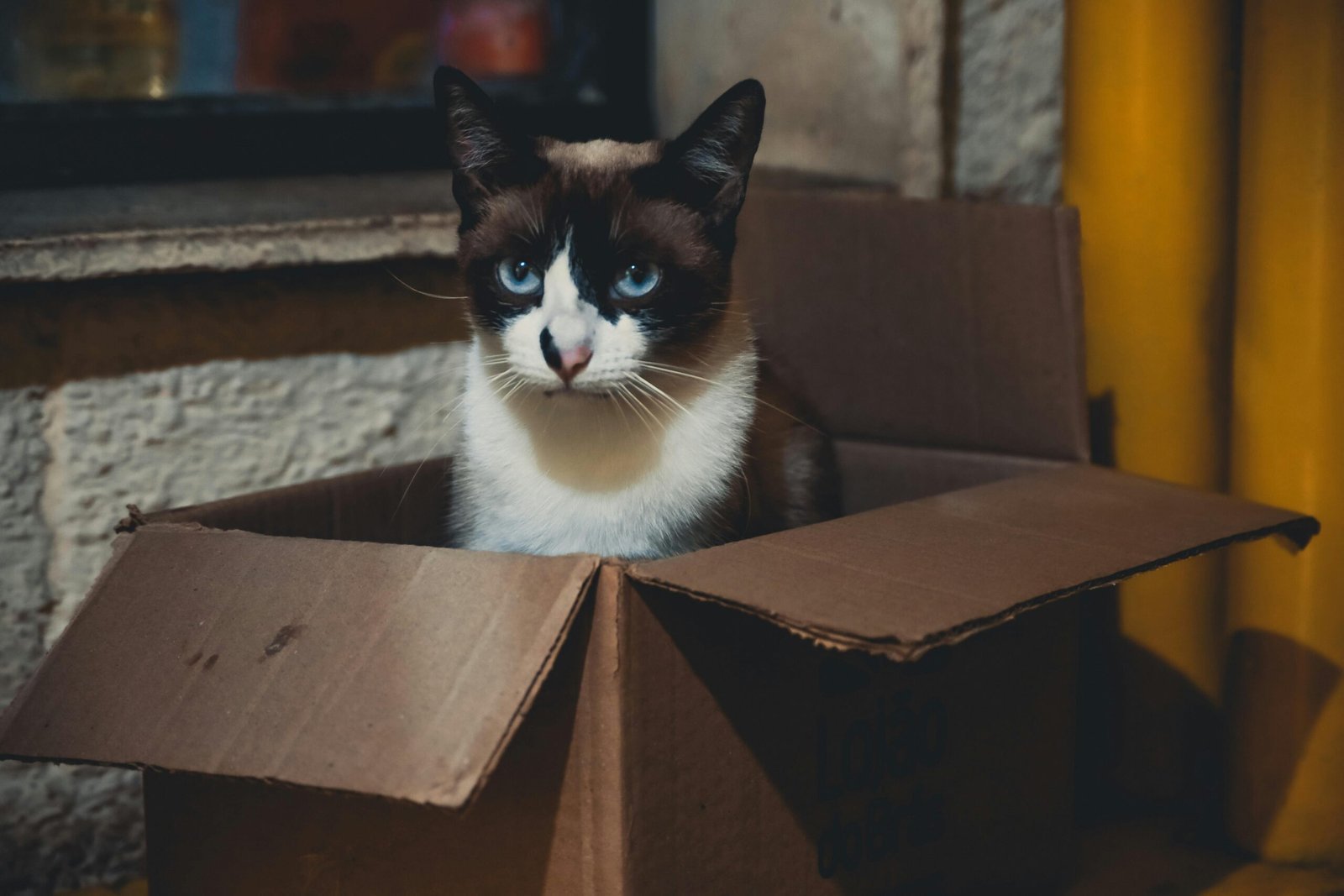
Our cat baby’s health and wellness are always on top of our minds. We want them to eat well, play well, and stay in good health. But cat constipation might derail our dreams for our furry darlings.
Many cat owners often neglect cat constipation. It does appear like a minor inconvenience. But, if you do not treat it properly, it can lead to serious health issues.
That sounds scary, right? But don’t worry; we are here to help your furry babies! Read on to find out the causes, symptoms, and treatment options for cat constipation.
Understanding Cat Constipation
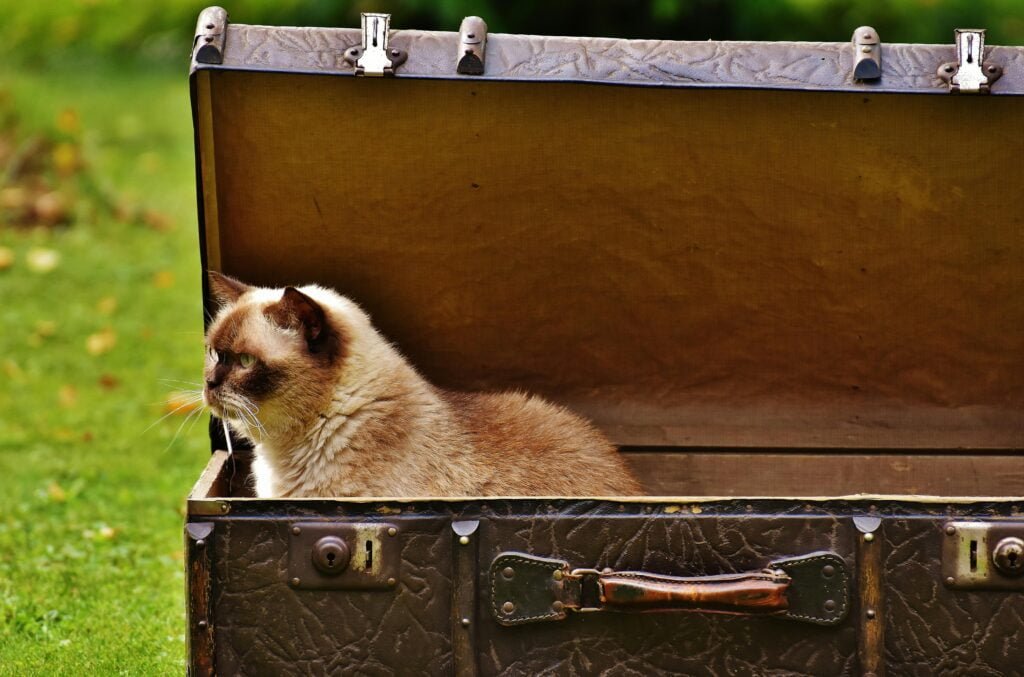
Cat constipation is a common gastrointestinal complication. Its main symptom is the infrequent passage of stool and difficulty in passing stool. In order to understand cat constipation, you must know how the digestive system of the cat works.
Your Cat’s Digestive System
Your cat’s digestive system is a complex network of organs. The system is designed to process the food, absorb the nutrients from the food, and then eliminate the waste. The digestive system of the cat starts at its mouth, followed by the esophagus. This esophagus is a tube that transports the food to the cat’s stomach. Here, the small intestine and the large intestine process the food further. The last part of the cat’s digestive system is the colon. The colon is responsible for the absorption of water. The feces of the cat are also formed in the colon.
Normal Bowel Habits of the Cat
If your cat is healthy, it will take 10 to 24 hours to digest the food and defecate the waste. You can expect a healthy cat to defecate once or twice a day. This schedule will vary depending on the food that the cat is eating and its metabolism. If the cat is healthy, then the stools will be firm but not hard. They will be well formed and of dark brown color.
The Process of Cat Constipation
Cat constipation happens when there is an obstruction in the colon that blocks the movement of the feces. Cat constipation is also caused when the movement of the feces in the colon is slowed down. This makes the feces remain in the colon for a longer time. The more time feces stays in the colon, the more water absorption happens. This absorption makes the stool hard and difficult to pass. If you do not treat it, the hardened feces can build up in the colon and cause complete blockage.
Severity Levels of Cat Constipation
Suppose your cat has occasional difficulty in passing stools but can still defecate with some effort. In that case, it is considered a case of mild cat constipation. Moderate cat constipation happens when your cat has frequent episodes where it struggles to defecate. If you see your cat having prolonged difficulty in defecating, then it is a severe case of cat constipation. Severe cases of constipation can result in complete blockage if you do not address it promptly.
Causes of Cat Constipation
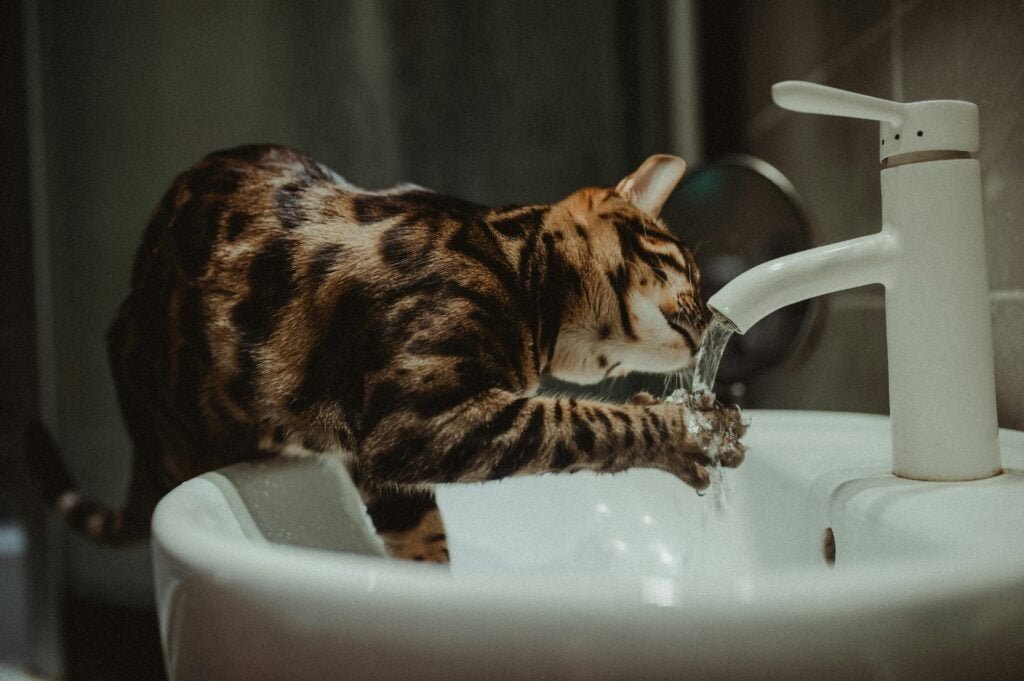
Your pet baby gets cat constipation from one or a combination of the following factors –
1. Cat Constipation Caused by Dehydration
Cats have evolved as desert animals. So, their bodies are adapted to the low water conditions. As a result, the cats have a lower thirst drive in comparison to other animals. As cats are prone to drinking less water, they are at risk of chronic dehydration. If you are feeding your cat primarily with dry food, such as commercial cat food, it puts them at a higher risk of dehydration.
When your cat is dehydrated, it forces the cat’s body to adapt. It extracts more water from the feces in an effort to conserve water. This process aggravates the dry stool situation. The stools become even harder, and your cat will have more difficulty in defecating.
2. The Link Between Diet and Cat Constipation
Your cat’s diet is a key factor in its digestive health processes, including defecation. Cats are obligate carnivores. Their digestive systems have evolved to process protein-rich and moisture-rich foods. So, meat is the ideal food for the cat’s digestive system. But not all cat parents feed meat to their cats. The reasons might be convenience or fear of contamination in meat, etc.
Many cat owners feed their pets primarily with dry kibble. Although the readymade cat food is rich in nutrients, it does not provide the benefits of meat to the cat’s digestive system. For instance, these cat foods do not contain fiber.
Cats do not need as much fiber in their food as the other carnivores. But, they need some fiber to add bulk to the stool and stimulate bowel movements. The meat from natural prey contains up to 70% water. But, the dry cat food has only 10% moisture. So, this lack of water content in food results in chronic dehydration, which will lead to cat constipation.
3. Lack of Exercise leads to Cat Constipation.
When the cat is active, the physical movements activate the muscles of the stomach. This activity stimulates the digestive tract to ensure regular and comfortable bowel movements. If the cat is spending most of its time indoors, it might not have many options to stay active. If the cat has health issues such as obesity or arthritis, then it will not move around much. Senior cats also lack the energy needed for physical activity.
The lack of exercise prevents the stomach muscles from performing at their best. So, the movement of feces through the colon slows down. Ultimately, the sedentary cats end up having frequent episodes of cat constipation.
4. Cat Constipation from the Hairballs
Cats are obsessive groomers. They spend a large chunk of their day licking their coat. Grooming is also their way of coping with stress and anxiety. The cat’s tongue is specially designed with barbs for this purpose. As the cats groom, their hairs get stuck in the barbs on their tongue. And the cats end up swallowing this hair.
Generally, the hair passes through the digestive system without any trouble. But, sometimes, the cat swallows too much hair due to excessive grooming. The cats also groom each other. So, if you are a multi-cat household, your pets will end up swallowing each other’s hair. This excessive hair can accumulate in the cat’s intestine in the form of hairballs.
If the hairballs are too large in size, they can cause partial or full blockage in the digestive tract. So, the feces can not be expelled and the cat ends up with cat constipation.
5. Litter Box Issues Leading to Cat Constipation
Cats are instinctively clean animals. They are very particular about their litter box. If they are not comfortable with the litter box, the cats will avoid using the litter box altogether. Instead, they might hold their stool and end up with cat constipation. A dirty litter box is the obvious culprit.
If you suddenly change the litter type, your cat will hesitate to use the litter box. Similarly, if a litter box is placed in a noisy area with too many people moving around, the cat will feel stressed. If you have more than one cat and not enough litter boxes, it might result in competition among the pets. Some cats might not be able to access the litter box and hold the stool.
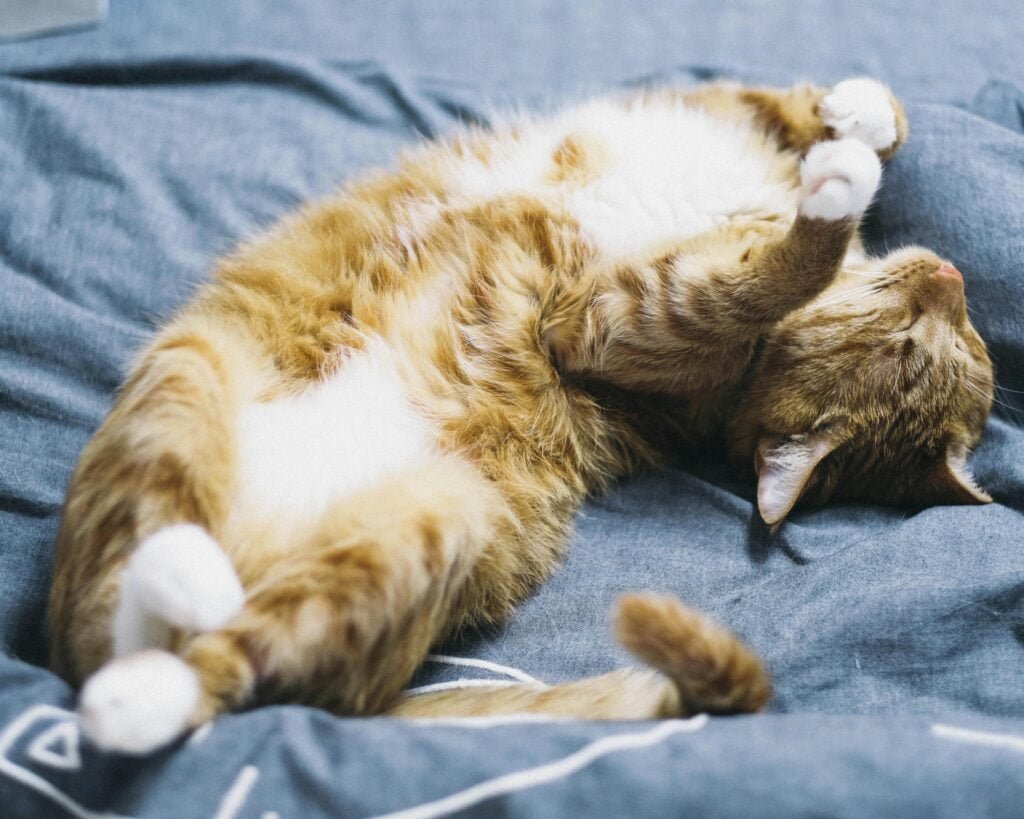
6. Medical Conditions Causing Cat Constipation
Cats can have health issues that can affect the movement and firmness of their feces. Conditions such as kidney disease often result in dehydration and electrolyte imbalances. This dehydration can lead to cat constipation. Neurological issues can affect the nerves that control the bowel movements. Hyperthyroidism can also cause cat constipation in some cases.
If the cat has arthritis, the posturing to defecate will be painful. The cat might develop the habit of holding the stool to avoid this pain. Inflammatory bowel disease can affect the ability of the intestines to move the feces. Some cats might also have a colon condition named Megacolon. This condition enlarges the colon and it can not contract properly to move the feces.
7. Medications
Some medications can cause cat constipation as a side effect. Pain medications such as opioids can affect the cat’s gut mobility and slow down the movement of the feces. Anti-anxiety medications affect the regulation of bowel movements as they work on the nervous system.
Medications such as antihistamines have a drying effect on the cat’s body. This can potentially cause harder stools and cat constipation. Antacids containing aluminum also cause cat constipation.
8. Age factor and Cat Constipation
As the cats become older, aging increases their risk of cat constipation. As the cat ages, the muscles of the colon will become weaker. So, the colon can not push the feces effectively. Older cats are often more sedentary. Lack of activity slows down digestion and movement of the feces.
Older cats are also more likely to be arthritic. So, when they posture to defecate, they will feel pain in their joints. The older cats might develop the habot of holding their stool in to avoid this pain. Older cats are also more likely to develop chronic diseases that result in cat constipation.
9. Obstructions
If your cat has a physical blockage in the digestive tract, it can result in constipation. If your cat swallows foreign objects, such as small toys or string, they can cause blockages in the cat’s stomach.
If the cat has tumors or masses in its colon or surrounding areas, it will block the movement of the feces. Sometimes, injuries or previous surgeries can cause scarring in the colon. This scarring narrows the colon and causes difficulties in the movement of the feces.
10. The Link Between Stress and Cat Constipation
Cats are super sensitive animals. They are very conscious about even the slightest changes in their environment. Even little changes like moving a litter box or adding a bright light can cause anxiety and stress. This can affect the motility of your cat’s digestive system and result in cat constipation.
If you move homes or add a new cat to your family it can cause stress to your cat. In a multi-pet household, conflicts with other pets can result in stress. Loud noises and unfamiliar visitors also disturb the cats. If the cat is traveling, boarding in different places can affect its routines and bowel movements.
Recognizing the Symptoms of Cat Constipation
If you detect cat constipation in the early stages, you can prevent further blockage and complications.
The first sign of constipation is the cat spending a long time in the litter box. You can see the discomfort as it will strain to defecate. It will also enter and exit the litter box frequently without actually defecating. When the cat eventually defecates, the stool will be rock-hard and dry like pebbles.
If your cat does not defecate for more than 48 hours, it is a clear sign of cat constipation. If the cat is constipated, it will vocalize with meows and cries while using the litter box.
Constipation also affects your cat’s appetite as it feels stomach discomfort. The cat’s stomach can become bloated and hard due to the build-up of feces in the colon. The cat might also adopt a hunched posture to deal with the discomfort in the stomach,
In severe cases, cat constipation can make the cat nauseous and result in vomiting.
Remedies for Cat Constipation
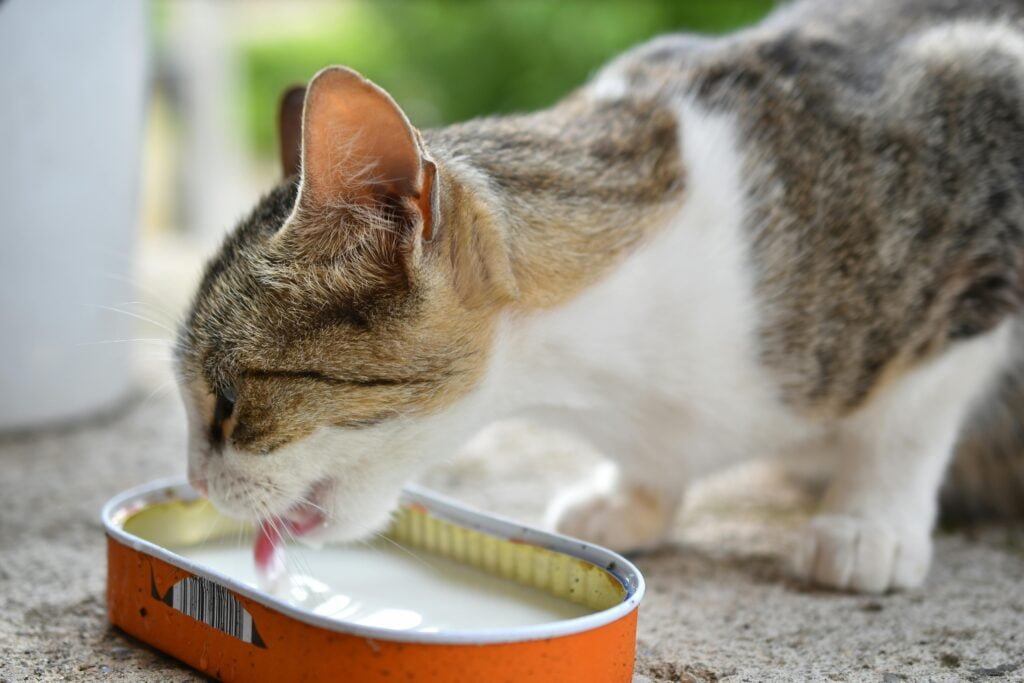
Dietary Changes
In mild cases of cat constipation, increasing the moisture content is a simple and effective remedy. You can achieve this by gradually mixing small amounts of wet food with your cat’s regular feed. You can increase the proportion of wet food by 10% every two to three days. If you offer different textures such as pate or gravy, your cat will like the variety and deal with enthusiasm.
You can also add a teaspoon of broth to the cat food. Grain-free meats are the ideal wet foods because they mimic your cat’s natural diet. Fiber-rich foods such as canned pumpkin, psyllium husk, and pureed green peas will help with the movement of the feces.
You can also get specially formulated diets aimed at relieving digestive distress. Your vet can also help you find multi-strain probiotics specially formulated for the cats. Probiotics are available in both powder and paste form.
Keep an eye out for vomiting and diarrhea as you change your cat’s diet. They might indicate an adverse reaction.
Hydration Techniques
Proper hydration prevents hardening of the stools in the colon. But cats are not very enthusiastic water drinkers. Water fountains made of ceramics or stainless steel will encourage the cat to drink. Find the one with adjustable flow so that you can adjust the settings to suit your cat. Keep this water fountain away from the litter boxes and food. Make sure its in a quiet area and easily accessible.
Sometimes, the cat might not like its water bowl. So, experiment with different materials, such as ceramic or glass bowls, to find out what your cat likes. Use shallow bowls with wide openings. Water in narrow and deep bowls can irritate the cat’s whiskers. Place multiple bowls of water in areas where your cats hang out.
Flavored water can encourage the cat to drink more. You can add frozen cubes of chicken and fish broth to entice the cat. A small piece of fish or catnip in the water bowl also attracts the cats. You can also try flavor enhancers that are commercially available.
Medication and Veterinary Treatments
In extreme cases, your vet might prescribe medication and other treatments for cat constipation. Your vet might suggest laxatives for short-term relief. These laxatives may be of lubricant variety or stimulant variety. These laxatives can cause dehydration if used in the long term. You have to be careful about that.
A veterinary professional can perform an enema in his clinic for cat constipation. This is usually a one-time option done under sedation. The vet might also perform a manual extraction under anesthesia. This procedure carries the risk of damage to the colon.
Cat constipation can also be managed with oral prokinetic agents to improve the motility of the digestive tract. The vet might also give subcutaneous fluids to your cat by inserting a needle under the skin.
If the cat’s constipation is too severe and does not respond to other treatments, surgery might be the solution. The vet might have to remove a part of the colon to improve digestive function.
The Importance of Patience and Consistency
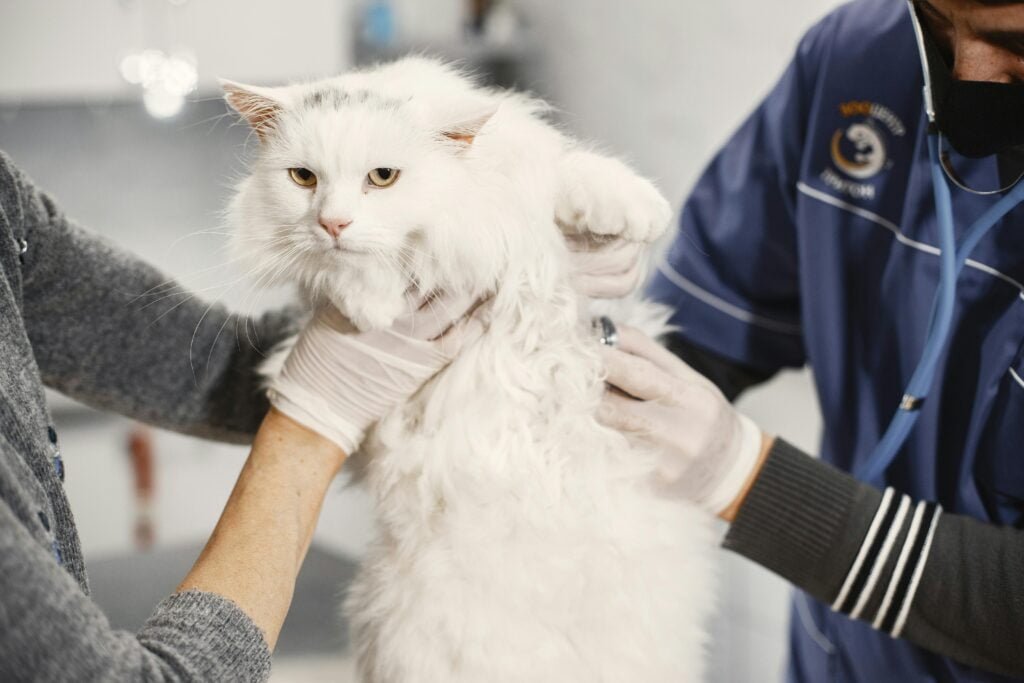
In the case of cat constipation, prevention is always better than cure. If you take care of your cat’s diet, hydration, and overall health, you can minimize the incidents of constipation. But if your cat already has it. Be patient and consistent with the treatment, as it might take some time.
Please work with your veterinarian to find the best combination of medical assistance and lifestyle changes to support your cat as it battles cat constipation.


